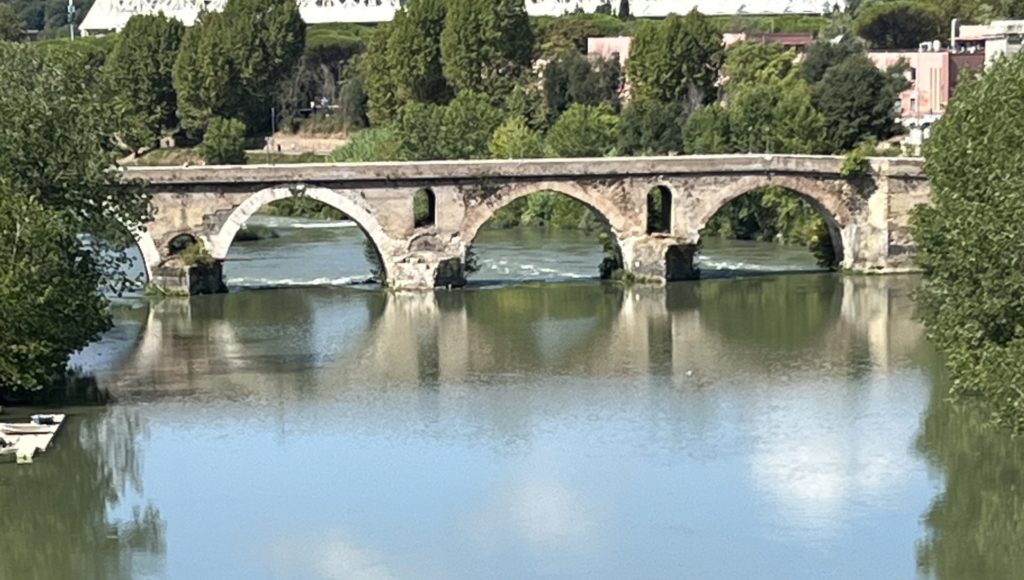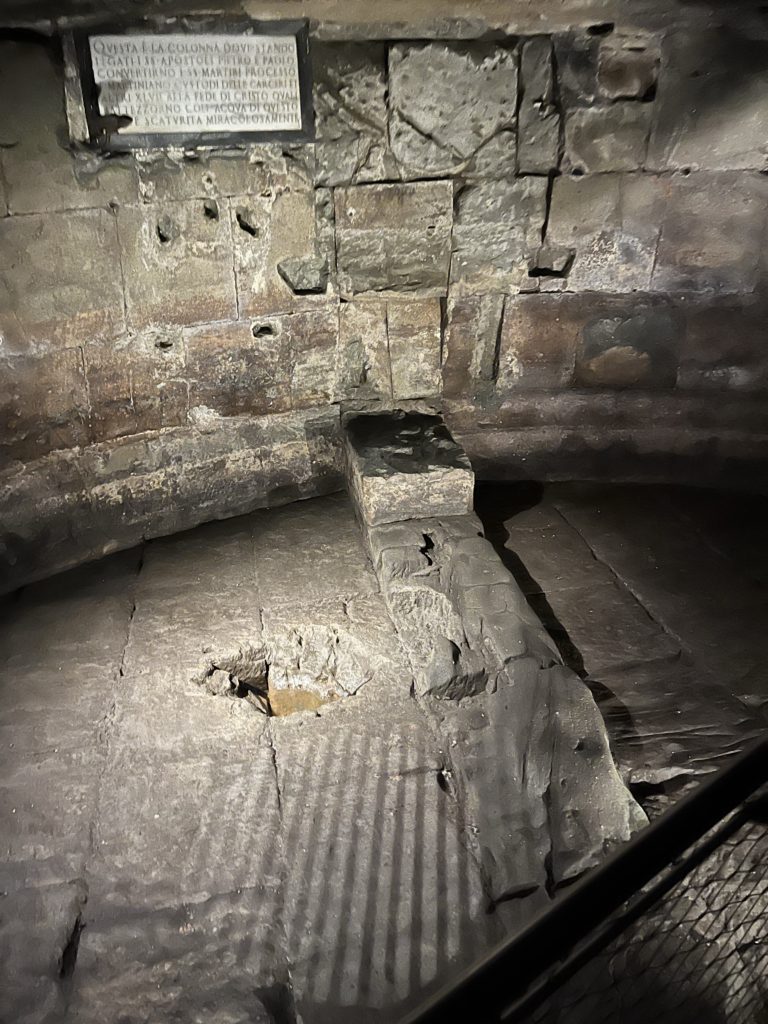
The Battle of the Milvian Bridge is a turning point in history, ranking up there with the Exodus, the Reformation, and the Pilgirms’ immigration to the New World.
By 312 A.D., somewhere between 20% and 50% of the Roman Empire were Christians. Just like Jesus had prophesied, the Kingdom had spread like leaven (Matthew 13:33), but Christians were still openly persecuted by the Roman government.
On October 27, 312 A.D., somewhere along the Via Flaminia on the way to Rome to confront the tyrant, Maxentius, Constantine saw the sign of Christ (the Chi Ro) in the sky above the sun bearing the inscription, “Conquer by this.” As Eusebius notes, it was not just Constantine who saw the sign, but his entire army. Then, that night in a dream, Jesus appeared to Constantine with the same sign Constantine had seen in the sky.
The next day, Constantine engaged Maxentius at the Milvian Bridge. When Maxentius and his army retreated across the makeshift bridge they had constructed as a trap for Constantine, the bridge collapsed and Maxentous and many in his army drowned in the Tiber, as Pharaoh and his army had drowned in the Red Sea. Constantine then liberated the Christians in Rome just as Moses had liberated the Israelites in Egypt.
Constantine’s victory at the Milvian Bridge effectively ended government persecution of Christians. Constantine passed the Edict of Milan, guaranteeing freedom of religion in the Roman Empire. He ended gladiatorial contests, facilitated the return of Christians who had been exiled for their beliefs, returned church property confiscated from Christians, and began building churches. It was a dramatic reversal of fortune for Christians in the Roman Empire and for Constantine, who became a Christian and champion of christianity throughout the empire and beyond its borders.
Today, as we stood on the bridge and looked east to where Maxentius’s army crossed the Tiber and would later drown on its retreat, I gave a detailed narrative of the battle, explaining the strategies and relative positions of the armies. As I was getting to the part about Maxentius’s retreat across the Tiber, The Wife started talking to Ann about shopping. Pray for her.
What is most surprising about the Milvian Bridge today is the absence of any historical marker signifying what happened here. It’s almost like the Romans, like The Wife, are more interested in shopping, as evidenced by the many shops, restaurants, and the cafe across the street from the bridge.
Much of the original bridge still remains (primarily its four arches) but there is nothing we could find to indicate one of the most important events in history occurred here nearly 1,700 years ago. We even walked east along the Tiber to the field where the battle took place. Nothing. It is now filled with apartment buildings and a university. Still, I am glad I finally saw it with my own eyes.
After lunch, we visited the Mamertine prison and stood in the cell where Paul and Peter were imprisoned.

Next we went to San Paolo alle Tre Fontane (the Church of the Three Fountains), which is built over the spot where the Apostle Paul was martyred in 67/68 A.D. The visit would have been better but for the fairy tale about Paul’s head bouncing three times after he was beheaded and the three fountains that supposedly appeared there.
Such silly stories about martyrs are found all over Europe, and they only serve to undermine the miracles that did occur and the courageous lives these kingdom heroes lived. This would have been a good time for The Wife to talk to Anne about shopping. Pray for her.
Our last stop of the day was the Basilica of Saint Paul Outside the Walls, the church originally built by Constantine for Paul’s tomb, which compelling evidence suggests contains his actual bones. What you get to see through a carved-out piece of rock is part of the side of his tomb, which is under the floor of the church.
It was an incredible day none of us will soon forget, except perhaps The Wife. Pray for her. GS.

